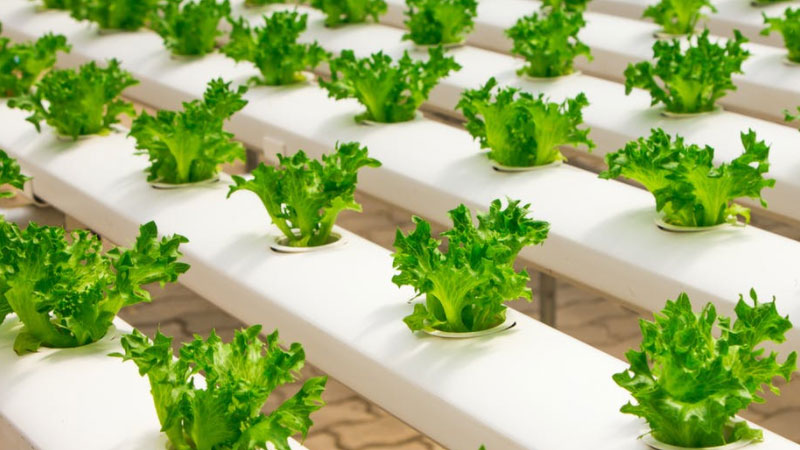The past two decades have seen a drastic change in the lifestyle of people. They have become more aware and health-conscious as compared to in the past. Now you cannot imagine a person who does not pay attention to his health and eats junk and processed food without admitting its harmful consequences.

The food industry has always shaped its landscape based on the lifestyle of consumers. The shift in consumers’ choices has led to the rapidly evolving food industry. You can see the difference in the manufacturing processes, supply chain operations, product packaging, and integration of technology at every level in the food industry.
Here are the six ways the food industry has changed over the past two decades.
A Boom in eCommerce
With the use of technology in every sector, the food industry is also striving to improve its service delivery. E-commerce specific to the food industry has become a new trend.
Owing to the recent surge in health-related risks, many businesses have revolutionized the ways of delivering their products to consumers. For instance, now you don’t have to visit the local grocery store to stock your inventory if you are living in any region of Canada. You can get groceries delivered in Whistler with SPUD at your doorstep while staying at home. The best thing is you can be environmentally friendly as their products are organic and farm-fresh.
Sustainable Practices
With the prevailing issue of climate change, the food industry is geared towards more sustainable practices. Consumers also prefer to support businesses based on environment-friendly policies and practices. They look out for food brands that are working to lower the carbon footprints at every step of the supply chain, from packaging to distribution.
Packaging and ingredients have become equally important for consumers, just like food quality. The trend for plastic packaging has changed and businesses now encourage reusable tote bags or brown papers.
Sustainable alternatives for plastic such as paper and jute are all the rage these days. For instance, PepsiCo, one of the most popular cold drink manufacturers, is making efforts to remove all virgin plastic from the packaging of their products, in this case, branded bottles in European countries this year. Many multinational firms are also turning to compostable and biodegradable materials for packaging. To sustain your business in the future, you have to reconsider your packaging choices and follow responsible practices for sourcing ingredients.
The Rise in Consumer Demand for Plant-Based Food
Plant-based food is driving a big change and is gaining popularity in the food industry.
As 23% of consumers in Canada consider themselves as ‘plant-forward’. However, it is important to know that a plant-based diet does not solely contain plants, and you don’t have to be a vegetarian to follow a plant-based diet. Plant-based food consists of approximately 70% of meals driven through plants and 100% clean ingredients. In 2022, 27% of Canadians want to include more vegetables in their diet, while 37.5% prefer locally sourced foods.
As consumer needs are continuously shifting and evolving, the food industry is moving away from how it was operating 20 years ago. At present, it is upscaling to provide consumers with more diverse options of plant-based foods.
Boost in Products Promoting Health and Wellness
Health and wellness products have become a new trend due to increased awareness in consumers about the importance of health. Over the past five years, there has been a dramatic change in labeling as they have become cleaner and clearer. Now, you can read the label of organic ingredients and “best for you health” offerings from major retailers.
In the food and beverages industry, functional ingredients are influencing the products. Consumers are demanding products that are enriched with healthy ingredients and offer one in all solutions. While the majority of foods tend to focus on the physical health of customers, the beverage industry is witnessing an emerging trend of demand for drinks that boost your productivity and performance.
The concept of adaptogenic drinks is gaining momentum in the beverage industry. These drinks contain ingredients that prevent the body from the symptoms of stress. Moreover, superfood beetroot has also joined the league of ingredients. A Canadian-based firm has introduced a new product that is based on grass-fed organic beetroot, honey, and yogurt. It proves to be a powerhouse of health due to its healthy ingredients.
B2B Waste Reduction Platforms
Consumers and food businesses are working on strategies to save food from waste and adopt more productive dining decisions that are environmentally friendly. Several apps are available in the market that connect customers with restaurants to save surplus food from the disposal. Moreover, some organizations are stepping up the game to improve B2B operations by working directly with restaurants to prevent inventory wastage.
Growth of Automated Industries
The food industry is continuously improving its operations based on technology and modern technique. Farming was the first sector that received the benefits of using technology to increase sales.
Nowadays, food processing and other supply chain operations are also dependent on automation. It sped up the processes and delivered much better results than manual labor. Furthermore, inflation and labor shortage have also contributed to the increasing trend of automation in the food industry.
Final Words
With the highly charged tech environment, technology will soon handle the crucial operations of the food industry. AI and advanced tech systems could improve the quality and efficiency of food production, distribution and consumption.




The food industry is evolving day by day. Thanks for the information on this topic. Subscribed your blog.